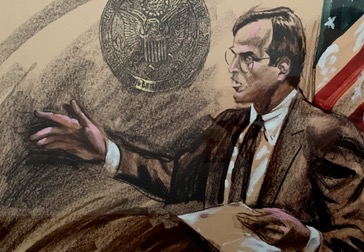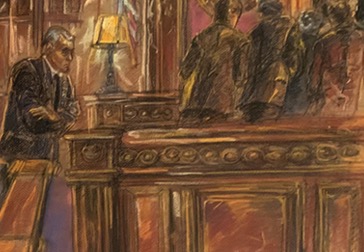Miami Federal Drug Crime Attorney
Miami’s reputation was tarnished for decades as a hotbed of drug crime. As a result, federal dollars flowed into the Miami DEA office, and prosecutors stepped up their efforts to investigate, arrest and prosecute drug crimes from the lowest levels to the highest. Federal agents enthusiastically seek out drug crime arrests in Miami, and U.S. Attorneys zealously prosecute and seek the maximum penalties from federal judges. If you are under investigation for a drug crime in South Florida or if you have been arrested on federal drug charges, make sure you receive high-quality representation from an experienced and successful Miami federal drug crime attorney. Call Bruce L. Udolf, P.A.
Can the federal government prosecute me for simple possession in Miami?
Many low-level drug offenders and innocent persons have got caught in the crossfire in the federal government’s war on drugs. The DEA isn’t just out to bust big Miami drug cartels. Big drug busts make the headlines, but one of the ways law enforcement agents get to the big busts is by arresting lots of people for minor offenses, hoping they can force defendants to give up higher-level offenders and work their way up the food chain.
Individuals in Miami even need to watch out for possession of small amounts of marijuana when it comes to federal drug charges. Even though marijuana is legal in Florida for medicinal purposes, the federal government claims that marijuana has “no currently accepted medical use and a high potential for abuse.” This definition classifies marijuana (cannabis) as a Schedule I drug, alongside heroin, LSD, ecstasy and peyote. Schedule I drugs are subject to severe penalties for federal drug trafficking. Having just one marijuana plant or any quantity under 50 kilograms can result in up to five years in the federal penitentiary and fines up to $250,000 on a first offense. Maximum prison time and fines double for a second offense.
Can the feds take my property if I’m accused of a drug crime in Miami?
U.S. asset forfeiture laws allow the DEA, the FBI, the DOJ and other federal agencies to seize your property, sell it and keep the money for themselves. To do this, the government needs to prove one of the following:
- The property was bought with proceeds from a crime
- The property is itself proceeds of a crime
- The property was used to facilitate a crime
- The property was used to make a crime harder to detect by law enforcement
If the government believes that particular property was used in or derived from a crime, they can bring an indictment against the property at the same time they bring an indictment against the accused. If the defendant is convicted, the judge or jury will move on to decide whether the property can be forfeited.
The U.S. government also has an administrative forfeiture procedure that happens outside of court. Under the Tariff Act of 1930, they can seize and forfeit any conveyance, such as a boat, plane or truck, which was used to import, transport or store a controlled substance. They can also seize monetary instruments and personal property that is worth as much as $500,000. If you file a claim against the agency taking your property, they’ll have to either give it back to you or bring an action in federal court. If you fail to file a claim, your property can be forfeited in an administrative proceeding.
Get Smart, Skilled and Effective Defense of Miami Federal Drug Charges
If you have been arrested on federal drug charges in Miami, get help from a former federal drug crime prosecutor with over a decade of experience defending people charged with federal drug offenses in Miami and South Florida. Call Bruce L. Udolf, P.A., for immediate assistance.







